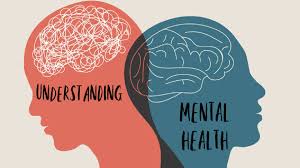In recent years, mental health has become a critical topic of discussion as we recognize its profound impact on overall well-being. As we move through 2024, it’s essential to stay vigilant about the signs and symptoms of mental health issues. Early detection can make a significant difference in treatment and recovery. This guide will help you identify key indicators of mental health problems and provide strategies for addressing them effectively.
1. Understanding Mental Health

Mental health encompasses emotional, psychological, and social well-being. It affects how individuals think, feel, and act, influencing their ability to handle stress, relate to others, and make decisions. Mental health issues are common and can affect anyone, regardless of age, gender, or background.
Importance of Mental Health
- Emotional Stability: Healthy mental well-being allows for effective management of emotions and stress.
- Healthy Relationships: It supports positive interactions and relationships with others.
- Productivity and Quality of Life: Good mental health contributes to overall productivity and life satisfaction.
2. Common Mental Health Conditions
Understanding different mental health conditions can help in recognizing their signs and symptoms. Here are some common mental health issues:
Depression
- Symptoms: Persistent sadness, loss of interest in activities, changes in sleep and appetite, fatigue, feelings of hopelessness.
- Prevalence: Affects millions globally and can vary from mild to severe.
Anxiety Disorders
- Symptoms: Excessive worry, restlessness, muscle tension, sleep disturbances, panic attacks.
- Types: Includes generalized anxiety disorder (GAD), social anxiety disorder, and panic disorder.
Bipolar Disorder
- Symptoms: Extreme mood swings between mania and depression, changes in energy levels, impulsivity during manic phases.
- Treatment: Often requires a combination of medication and therapy.
Obsessive-Compulsive Disorder (OCD)
- Symptoms: Intrusive thoughts (obsessions) and repetitive behaviors or mental acts (compulsions).
- Impact: Can interfere significantly with daily life.
3. Signs and Symptoms to Watch For

Being aware of the signs and symptoms of mental health issues can facilitate early intervention. Here’s what to look out for:
Emotional Symptoms
- Persistent Sadness: Ongoing feelings of sadness or emptiness that don’t seem to lift.
- Mood Swings: Frequent changes in mood, including intense highs and lows.
- Irritability: Unexplained irritability or anger that affects relationships.
Behavioral Symptoms
- Withdrawal: Pulling away from social activities and relationships that were previously enjoyed.
- Changes in Routine: Noticeable changes in daily routines, such as neglecting personal hygiene or abandoning responsibilities.
- Substance Abuse: Increased use of alcohol or drugs as a coping mechanism.
Cognitive Symptoms
- Difficulty Concentrating: Trouble focusing, making decisions, or remembering things.
- Negative Thoughts: Persistent negative or distorted thinking patterns, such as feelings of worthlessness or guilt.
- Paranoia: Unfounded fears or suspicions about others or situations.
Physical Symptoms
- Changes in Sleep: Insomnia or oversleeping, often with no clear cause.
- Appetite Changes: Significant weight loss or gain due to changes in appetite.
- Chronic Fatigue: Persistent tiredness that does not improve with rest.
4. When to Seek Help
Early intervention is crucial for effective treatment. Here are signs that it might be time to seek professional help:
- Severe Distress: Persistent or worsening symptoms that interfere with daily functioning.
- Crisis Situations: Thoughts of self-harm or suicide, or if someone is in immediate danger.
- Impact on Daily Life: Significant changes in work, social activities, or relationships due to mental health symptoms.
Seeking Professional Help
- Therapists and Counselors: Mental health professionals can provide therapy and coping strategies.
- Psychiatrists: Medical doctors who can prescribe medication and provide specialized treatment for mental health disorders.
- Support Groups: Groups where individuals can share experiences and receive support from others facing similar challenges.
5. Tips for Managing Mental Health
In addition to professional help, there are several strategies individuals can use to manage and improve their mental health:
Self-Care Practices
- Exercise Regularly: Physical activity can boost mood and reduce stress.
- Healthy Eating: A balanced diet supports overall well-being and can impact mood and energy levels.
- Adequate Sleep: Prioritize quality sleep to help regulate mood and stress levels.
Stress Management
- Mindfulness and Relaxation: Techniques like meditation and deep breathing can help manage stress.
- Time Management: Organize tasks and set realistic goals to reduce feelings of overwhelm.
Building a Support System
- Stay Connected: Maintain relationships with friends and family who provide emotional support.
- Open Communication: Share your feelings and concerns with trusted individuals.
6. Promoting Mental Health Awareness

Raising awareness about mental health is essential for reducing stigma and encouraging individuals to seek help. Here are ways to promote mental health awareness:
Education and Advocacy
- Educational Programs: Schools and workplaces can implement programs to educate about mental health and wellness.
- Community Initiatives: Support local events and campaigns focused on mental health awareness.
Encouraging Open Dialogue
- Share Information: Use social media and other platforms to share mental health resources and information.
- Support Conversations: Foster environments where open discussions about mental health are encouraged and normalized.
Conclusion
Mental health awareness is vital for recognizing and addressing mental health issues effectively. By understanding the signs and symptoms, seeking appropriate help, and implementing self-care strategies, individuals can better manage their mental well-being. As we move through 2024, let’s continue to prioritize mental health, break the stigma, and support one another in fostering a healthier and more supportive society.

